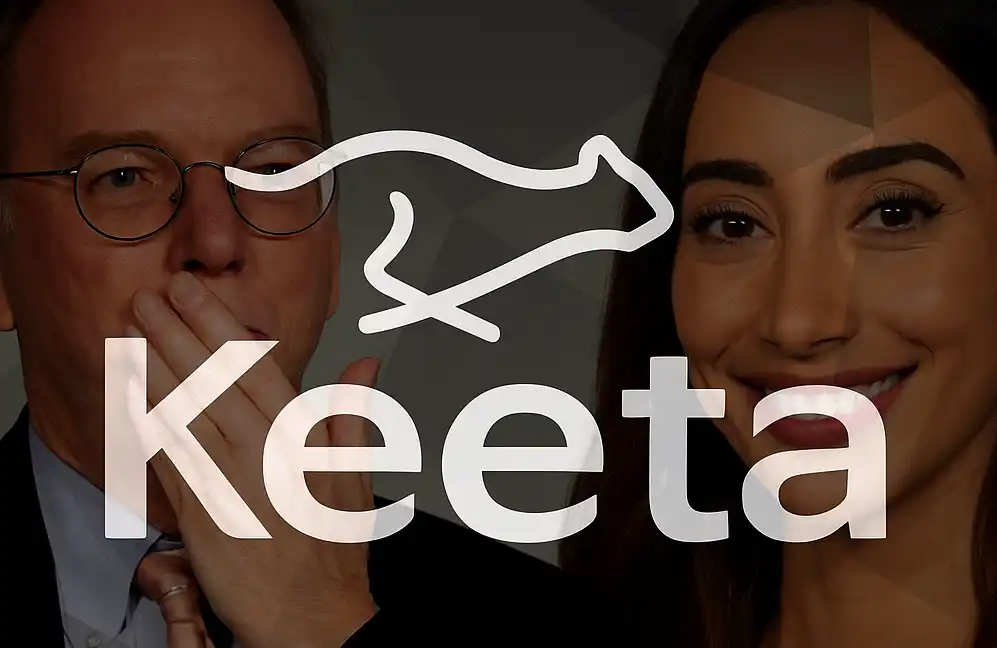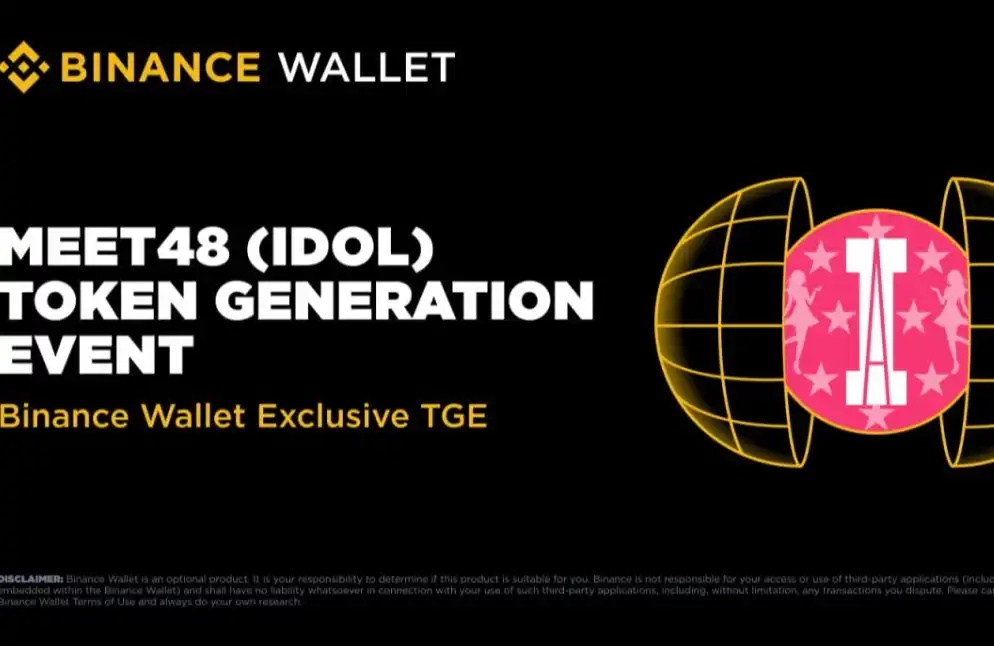SEC Chair Gives the "Green Light," Is DeFi Summer Poised for a Comeback?
Editor's Note: On June 10, according to disclosures from the DeFi Education Fund, the U.S. SEC Crypto Working Group hosted a roundtable discussion today on the topic of "DeFi and the American Spirit." At the start of the event, SEC Chair Atkins spoke about how decentralized finance (DeFi) aligns with American values: "The American values of economic freedom, private property rights, and innovation are the core DNA of the decentralized finance (DeFi) movement." Moreover, Chair Atkins emphasized that developers of neutral tools should not be held liable for actions taken by third parties.

Good afternoon, everyone. It is truly an honor to be with you all today. First, I would like to thank Commissioner Peirce and the Cryptocurrency Special Working Group for organizing this event, as well as Commissioners Crenshaw and Uyeda for their participation. Of course, my heartfelt thanks also go to the panelists and our moderator Troy Parades, all of whom have generously volunteered their time and expertise to support our endeavors.
The theme of today’s roundtable is "DeFi and the American Spirit." This title is particularly fitting, as the American core values of economic freedom, private property rights, and innovation are deeply embedded in the ethos of the decentralized finance movement. Blockchain, as a disruptive and groundbreaking technology, is fundamentally reshaping how we think about intellectual and economic property rights and their transfer and verification. By using blockchain’s shared databases, we can enable individuals to own digital assets called cryptocurrencies without relying on intermediaries or centralized systems. This model exemplifies a free-market system: participants uphold the integrity of the shared database by following network rules, and users pay fees based on supply and demand to include transactions in "blocks" of limited storage capacity.
The previous administration’s use of lawsuits and regulatory threats to suggest that staking-as-a-service providers might be involved in securities trading has effectively hindered U.S. citizens’ participation in market-driven systems. The SEC’s Division of Corporation Finance has pointed out that voluntarily acting as miners, validators, or staking-as-a-service providers in proof-of-work or proof-of-stake networks should not fall under the jurisdiction of federal securities laws. These statements, while providing regulatory guidance, do not yet carry the force of legally binding rules. It is imperative for the SEC, under the authority delegated by Congress, to advance the legislative process in these areas.
The right to private property and self-custody—defined as the individual’s ability to manage and control their legally owned property without external interference—is a foundational principle of America. This right should not be eroded by the mere presence of internet connections. We must advocate for granting market participants greater flexibility and autonomy, particularly when intermediary institutions impose unnecessary transaction costs or restrict users from participating in staking and other on-chain activities.
The prior administration's regulatory actions suggested that developers of on-chain technologies, such as self-custodial digital wallets, could be deemed securities brokers, which effectively stifled innovation in related industries. It is plainly unreasonable for engineers to be subject to federal securities regulations merely for publishing software code. This notion has been definitively refuted in the case of Risley v. Universal Navigation Inc. (2025 WL 615185): Engineers cannot be held liable under securities regulations simply for releasing software code. The core principle established in this ruling states that "just as developers of autonomous driving systems are not liable for third parties using vehicles to commit traffic violations or robberies, providers of technical tools should not bear shared responsibility for others misusing on-chain tools. Under securities laws, accountability should rest with those who actually control user assets and commit specific violations, not with the underlying technology developers."
Currently, numerous entrepreneurs are striving to develop autonomous software applications that require no operational oversight. These self-executing codes possess the following characteristics: universal accessibility, absence of a central controlling party, and support for private peer-to-peer transactions. While this may seem like the stuff of science fiction, blockchain technology is making these new intermediary-free applications a reality. I firmly advocate that we must not allow outdated regulatory frameworks, established over a century ago, to stifle the kind of technological innovation that has the potential to disrupt—and, more importantly, substantively improve and upgrade—our existing financial intermediation models. Fear of what's to come should not deter us from moving forward.
Stress testing has validated that these on-chain autonomous systems demonstrate structural resilience under pressure. During recent market turbulence, many centralized platforms experienced repeated failures, yet most on-chain systems persisted in strict adherence to their open-source protocol designs. An empirical analysis from the S&P Global Ratings report (June 2023) attests to this: the collapse of multiple centralized finance (CeFi) institutions in 2022 revealed shortcomings in their risk management, governance inefficiencies, and the systemic risk of inter-institution contagion. In stark contrast, decentralized finance (DeFi) protocols, as a whole, withstood the shocks, with major collateralized lending platforms maintaining close-to-zero haircut ratios and decentralized exchange volumes continuing to grow.
The current securities regulatory framework is built on the premise of regulating issuers and intermediaries, including broker-dealers, investment advisers, exchanges, clearinghouses, and others. At the time these rules were constructed, policymakers likely didn’t foresee scenarios involving self-executing code replacing such entities. Therefore, I’ve tasked Commission staff with studying whether additional guidance or rulemaking is warranted—whether supplementary regulatory guidance or amendments to existing provisions are needed to allow registered entities to interact with these on-chain systems while remaining compliant with the law.
I also recognize the potential for issuers and intermediaries to leverage on-chain systems to reduce economic friction, increase capital efficiency, develop new financial products, and enhance liquidity. While existing securities regulations already contemplate the use of innovative technologies, I have asked staff to evaluate whether adjustments to Commission rules might be necessary to offer registered entities more tailored accommodations for operating on-chain financial systems.
As the Securities and Exchange Commission and its staff undertake rulemaking specific to on-chain financial markets, I have directed the team to explore the establishment of a “conditional exemption framework” (also known as an "innovation sandbox"). This initiative aims to enable both registered and non-registered entities to accelerate the launch of on-chain financial products and services. By setting conditions for compliant innovation, this framework would encourage developers, entrepreneurs, and relevant institutions to advance blockchain technologies within the U.S., thereby supporting President Trump’s vision of "making America the global hub for crypto assets."
Thank you all for listening, and I look forward to the upcoming discussion.
Welcome to join the official BlockBeats community:
Telegram Subscription Group: https://t.me/theblockbeats
Telegram Discussion Group: https://t.me/BlockBeats_App
Official Twitter Account: https://twitter.com/BlockBeatsAsia
 Forum
Forum OPRR
OPRR Finance
Finance
 Specials
Specials
 On-chain Eco
On-chain Eco
 Entry
Entry
 Podcasts
Podcasts
 Activities
Activities

 Summarized by AI
Summarized by AI






